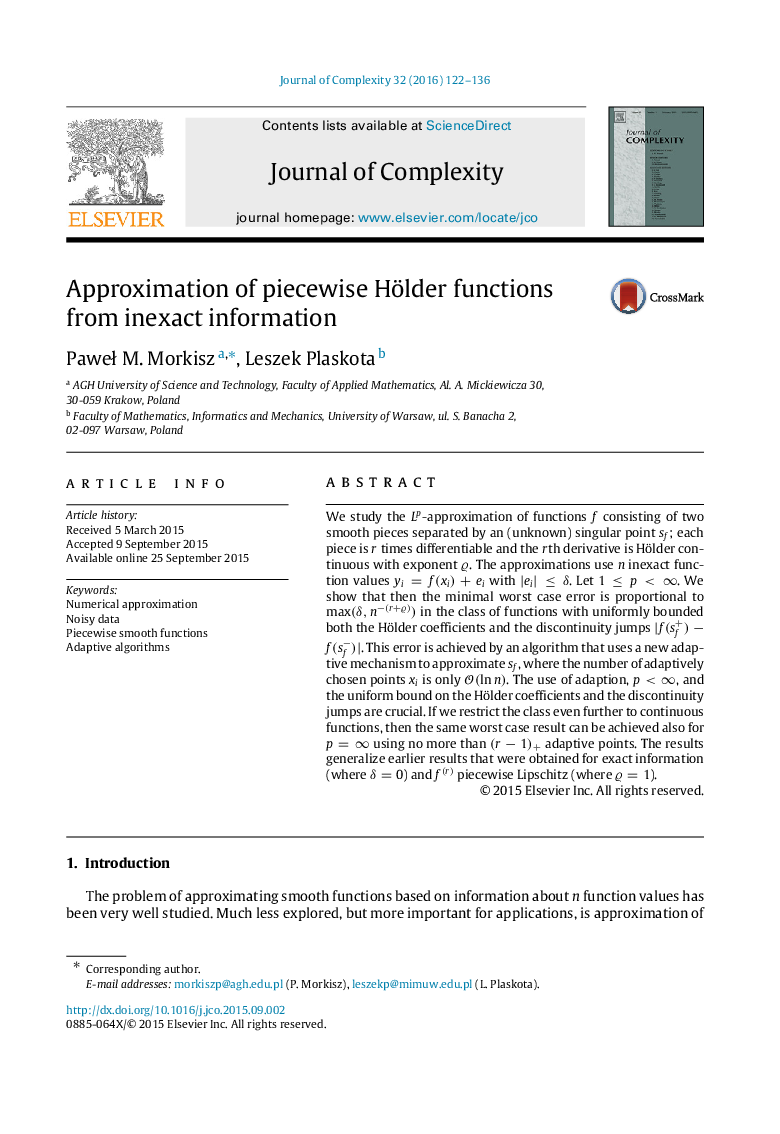| Article ID | Journal | Published Year | Pages | File Type |
|---|---|---|---|---|
| 4608499 | Journal of Complexity | 2016 | 15 Pages |
We study the LpLp-approximation of functions ff consisting of two smooth pieces separated by an (unknown) singular point sfsf; each piece is rr times differentiable and the rrth derivative is Hölder continuous with exponent ϱϱ. The approximations use nn inexact function values yi=f(xi)+eiyi=f(xi)+ei with |ei|≤δ|ei|≤δ. Let 1≤p<∞1≤p<∞. We show that then the minimal worst case error is proportional to max(δ,n−(r+ϱ))max(δ,n−(r+ϱ)) in the class of functions with uniformly bounded both the Hölder coefficients and the discontinuity jumps |f(sf+)−f(sf−)|. This error is achieved by an algorithm that uses a new adaptive mechanism to approximate sfsf, where the number of adaptively chosen points xixi is only O(lnn)O(lnn). The use of adaption, p<∞p<∞, and the uniform bound on the Hölder coefficients and the discontinuity jumps are crucial. If we restrict the class even further to continuous functions, then the same worst case result can be achieved also for p=∞p=∞ using no more than (r−1)+(r−1)+ adaptive points. The results generalize earlier results that were obtained for exact information (where δ=0δ=0) and f(r)f(r) piecewise Lipschitz (where ϱ=1ϱ=1).
